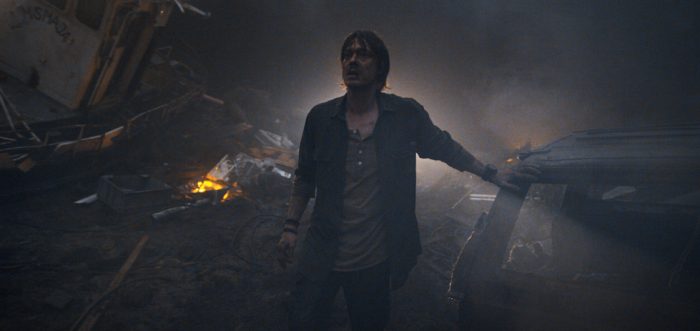
It is a well-worn tenet of film theory that the driving anxieties of a society are expressed through its films. Concern for the changing nature of masculinity found voice in ‘40s film noir, the teen movie sublimated 1960s generational angst, and monster movies evinced Cold War America’s fear of The Bomb. Given this, I can only pity the academics that will have to filter through the disaster movies of the past twenty years for proof of our latent fear of global warming.
In terms of quality, though not in terms of ticket sales, the modern disaster movie has found itself in a Roland Emmerich shaped lacuna. With their humourless tone and over-reliance on CGI, modern disaster films like San Andreas and 2012 too often use the central disaster as a replacement for drama rather than a catalyst for it. This might have played better when watching major cities explode was still a novel concept, but in 2016 a disaster movie needs to elevate itself above the tropes of the genre to succeed beyond the box office.
It might seem surprising then that Norway’s official submission to the Academy Awards category this year was The Wave, a movie about a giant CGI tsunami destroying a small town. This is made more surprising by the fact that The Wave barely departs from the disaster movie format at all. On a $6 million budget, director Roar Uthaug combines a reverence for the genre and a craftsman’s eye to create a sort of disaster film in miniature; a meticulous scale model of its Hollywood precursors that often bests them for style and impact but is rarely more than the sum of its parts. The Wave ultimately places too much faith in the logic of the disaster movie and not enough emphasis on its story and original elements to amount to anything more than a sturdy example of a played-out form.
The film begins with a news montage about a landslide in a fjord which caused a localised tsunami that devastated a small town. We are swiftly introduced to Kristian, a geologist who works with a team of scientists tasked with monitoring seismic activity in a similar town. Kristian and his family are about to move to the mainland so that Kristian can work for an oil company. We gather from interactions with family and friends that Kristian is attached to the town and is ambivalent about the move. A simple duality is established between hollow big city life and the village, which Kristian’s young daughter describes as having ‘soul’.
When the scientists at the monitoring station start receiving unusual readings, Kristian’s hysterical insistence that there is something wrong reads as a reflection of his guilt for abandoning the community he’s devoted himself to protecting, and a way of forcing himself to stay. Ultimately, when the wave does hit, it is easy to read the film as an allegory about the consequences of favouring selfish profit over the greater good. This is not complicated stuff, but these themes lend an unusual depth to the disaster movie tropes Uthaug invokes, managing to liven up the ‘scientist protagonist desperately warns his conservative colleagues’ set-up, which is ubiquitous to the genre. Combined with liberal use of the gorgeous Norwegian scenery, the film’s first half creates a satisfying if perfunctory sense of structure and place.
The thing that really stands to set this movie apart, however, is the titular wave. The originality of a fjord tsunami brings an uncanny quality to the disaster sequence, making it feel scary in a way that few disaster sequences are anymore. The quality of the special effects belies the film’s small budget, making the wave’s appearance feel genuinely terrifying. The Wave is ultimately structured far more like Titanic than any Roland Emmerich movie, with its sparing use of special effects and the space it makes for character drama.
This comparison is telling however, because although The Wave makes space for interesting characters they never seem to arrive. While the acting is good across the board, the characters are the same grab-bag of tropes found in any mediocre blockbuster. The teenage son, shown always with headphones around his neck, has a crush on a mostly anonymous local girl. The young daughter is an adorable innocent. The closest the film comes to character exposition is also one of its most contrived moments: a scene where Kristian is shown skipping stones with his son and discussing his feelings about leaving.
This means that once the wave has hit and the post-disaster clichés begin—’did she make it?’, ‘I have to go back and save them’—the tropes that the earlier sections of the film managed to make new suddenly feel old again. The flattened remains of the town are suitably eerie, but the emotional stakes are too low to inspire interest in the ultimate outcome.
It’s funny that The Wave makes repeated reference to the idea of ‘soul’, because it ends up being what the film lacks. Though it equals and often bests the genre work it’s imitating, it feels more like the high achieving student-version of Hollywood blockbusters moreso than the product of genuine inspiration. The Wave amounts to an effective but hollow piece of entertainment that makes a good case for giving the director a bigger budget, rather than an Academy Award.
